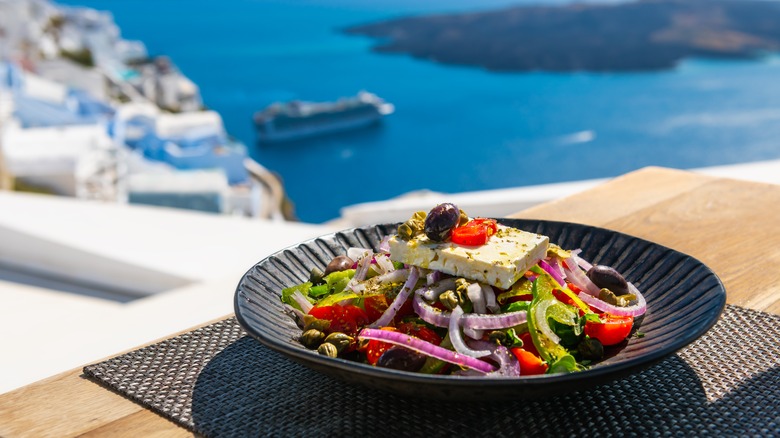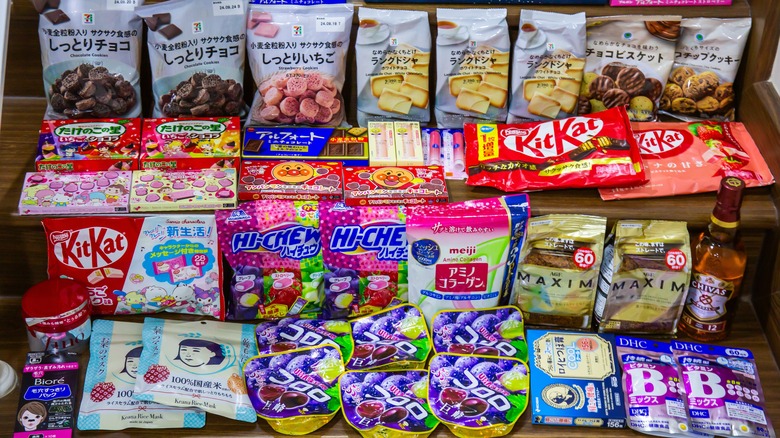Don't Order The Salad On Vacation: Why The CDC Says Eating Raw Fruits And Veggies Abroad Is A Bad Idea
Trying different foods abroad is one of the best parts of a trip. Experiencing the nuances of any given culture's cuisine via taste is an unrivaled feeling. However, the Centers for Disease Control (CDC) has recommended against eating raw fruits and vegetables when traveling, as there is a higher risk of contamination with human or animal waste, which can cause food poisoning.
The whole point of salad is to try veggies in their purest form (often with a complementary dressing), but its rawness is what makes it more dangerous than cooked food. Typically, the harmful bacteria found on vegetables do not survive the cooking process. But the only way to reduce contamination in salads is to rinse them with water, and sometimes that's not enough to avoid certain kinds of food poisoning like listeria or shigella.
To be fair, it's not like food poisoning can only happen abroad. There are plenty of mistakes one can make when meal prepping at home that can result in food poisoning. That being said, it's harder to control the food preparation when you are traveling. That's why the CDC also suggests staying away from bushmeat, fresh salsas or pico de gallos, tap water, and unpasteurized (or raw) milk, as these are not safe to drink and can carry harmful pathogens.
What can be enjoyed on vacation?
Despite the list of things you should avoid seeming long, there's still plenty of food you can eat safely. While the CDC warns that it's risky to eat street food, the risk reduces if the food is cooked and served steaming hot. In general, for the sake of your tummy, you should only eat things served at the appropriate temperature (i.e., "cold food should be served cold, and hot food should be served hot").
Because the CDC generally advises that dry, packaged foods and sealed drinks are among the safest options when traveling, think of your trip as an opportunity to try various snacks from other places. You can make an event of it and taste test all the different kinds of chips, candies, and soda sold locally. Candy also makes a great souvenir for your loved ones back home.
Hot tea and hot coffee are also safe to consume in other parts of the world, as long as they're served piping hot. However, when it comes to your cup of joe, you should be careful with what you mix in it. To stay on the safe side, try only using pasteurized milk from a sealed bottle.


